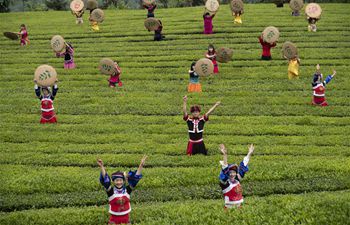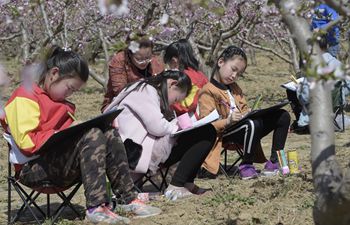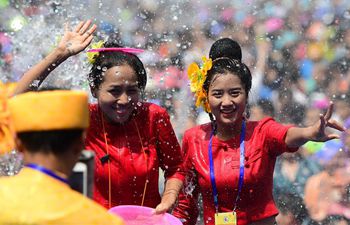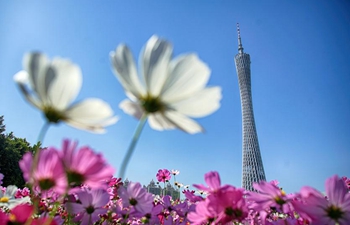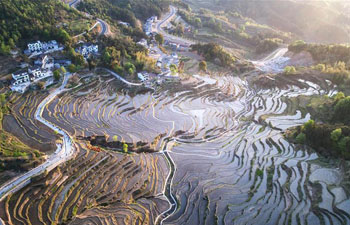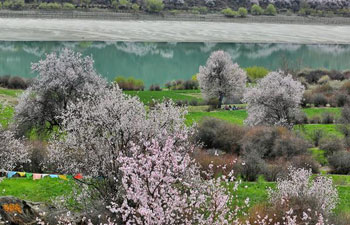LOS ANGELES, April 15 (Xinhua) -- A team of researchers at the University of California, Riverside have isolated three previously unknown bacterial species from wild bees and flowers that may help prevent spoilage of the pollen that wild bees provision for their young.
According to the new study, published in the current issue of the International Journal of Systematic and Evolutionary Microbiology, the news strains, which belong to the genus Lactobacillus, are Lactobacillus micheneri, Lactobacillus timberlakei and Lactobacillus quenuiae.
Lactobacilli are often used by humans to preserve dairy products, fermented vegetables and other foods.
The study, led by Quinn McFrederick, an assistant professor of entomology in UCR's College of Natural & Agricultural Sciences, suggests the newly identified species may help bees in a similar way, inhibiting the growth of fungi inside pollen provisions.
"Wild bees lay their eggs inside chambers filled with nectar and pollen," McFrederick said, quoted by the university's press release. "Once an egg has been laid, it may take several days to hatch and an additional week for the larvae to eat through all the nectar and pollen, so it is important that these provisions don't spoil during this period."
Researchers are currently conducting research to further explore this hypothesis.
To study the bacteria associated with wild bees, McFrederick and co-authors collected wild bees and flowers from two sites in Texas and on the UCR campus.
Compared to honeybees and bumblebees, little is known about the microbial communities associated with wild bees, despite the important role these insects play in the pollination of flowering plants.
Genomic DNA sequencing coupled with traditional taxonomic analyses confirmed the isolation of three new Lactobacillus species, according to the study.





